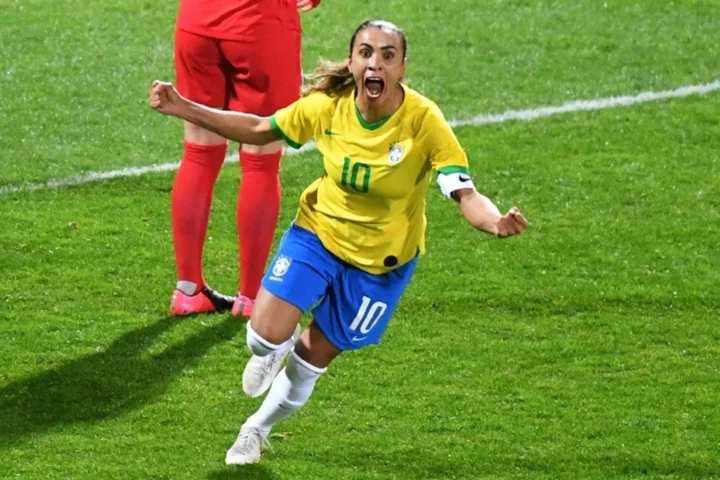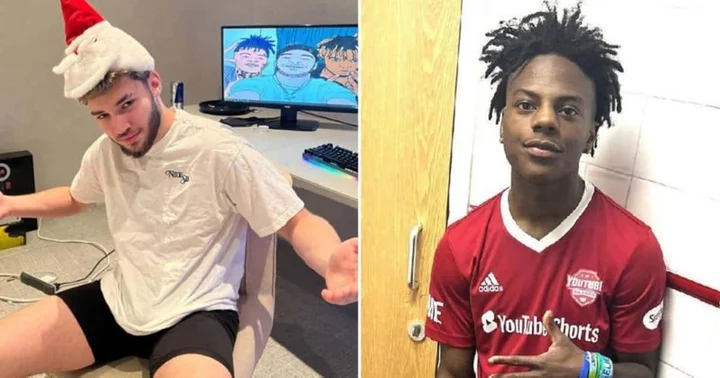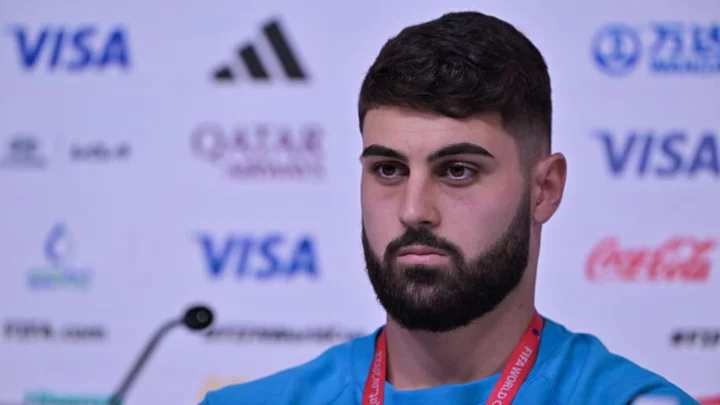Nicknamed "Pele in a skirt" by the late football great himself, the Brazilian star better known to fans as "Queen Marta" has her last shot at winning the Women's World Cup at this year's tournament.
The 37-year-old has confirmed this will "undoubtedly" be her last appearance at the World Cup in an interview with YouTube channel CazeTV just before coach Pia Sundhage announced her squad.
Yet Brazil's chances of sending her off with a first world crown look slim, with Marta battling injury in the twilight of her career and the team at a generational crossroads.
"It is to be expected that I am not the Marta of 20 years ago but physically I feel good and mentally I am even better," she insisted.
Marta has however spent a lifetime overcoming obstacles, from a childhood of poverty to sexism and, more recently, the worst injury of her career.
Arguably the best female player of all time, she has come agonisingly close to international glory with the "Selecao", making it to the World Cup final in 2007 and picking up silver medals in the 2004 and 2008 Olympics.
She is the all-time leading goal scorer in World Cups -- men's or women's -- with 17 in five editions, one better than Germany's Miroslav Klose.
She will now get a chance to extend that record.
- Nearly year-long absence -
Marta will be without two of her veteran companions.
Fellow legend Formiga retired from the national team in 2021 after seven World Cups, while forward Cristiane, 38, was not selected.
Marta herself spent nearly a year away from the pitch with a serious knee injury.
The three-time Copa America winner (2003, 2010 and 2018) missed that competition last year, when Brazil successfully defended their title.
She returned only in February, for Brazil's 1-0 win over Japan in the SheBelieves Cup.
"It's the first time I've gone that long without playing. I suffered a lot," she said after making her comeback.
Marta might not have won three World Cups like Pele but she is one of the most decorated players in history and has been named FIFA world player of the year six times.
But her biggest achievement was to escape the misery of a difficult childhood in Dois Riachos, Alagoas state, in Brazil's arid northeast.
A UN ambassador for gender equality, she is an inspiration for many Brazilian women who love to play football but are often stigmatized in a country where machismo looms large.
- Sparkling career -
Marta Vieira Da Silva has been chasing her dreams all her life, starting off by trying to keep up with her brothers as they played.
Home life was difficult -- her parents split up before she was a year old, and her mother was left to fend for herself and four children.
The family had no money for school supplies, so Marta only started education aged nine.
She played in school leagues until the day when one coach refused to let his team compete unless she withdrew.
At that stage, a local scout brought her to Rio de Janeiro for trials with nascent women's clubs.
Aged 14, Marta had never left her home state.
She impressed in one trial and signed for the Vasco da Gama youth team. Sissi, considered Marta's predecessor as Brazil's top female star, was then in the club's senior side.
She remembers the first time she set eyes on Marta.
"Her technical ability and explosive pace were incomparable. Everyone is born with a gift, and this is hers," Sissi told AFP.
By 2003, Marta was in Brazil's World Cup squad, aged just 17.
Months later, she joined Swedish club Umea, and promptly landed the UEFA Women's Cup -- forerunner to the modern Champions League -- with them.
That year, she earned her first nomination as women's world player of the year, going on to win five straight crowns from 2006 to 2010.
She then moved to the United States, where she now plays for Orlando Pride.
She has scored a record 122 goals for Brazil -- beating both Pele and Neymar, who are tied for the men's record at 77 each.
Winning a world crown would complete her sparkling resume.
raa-lg/jhb/as/gj









